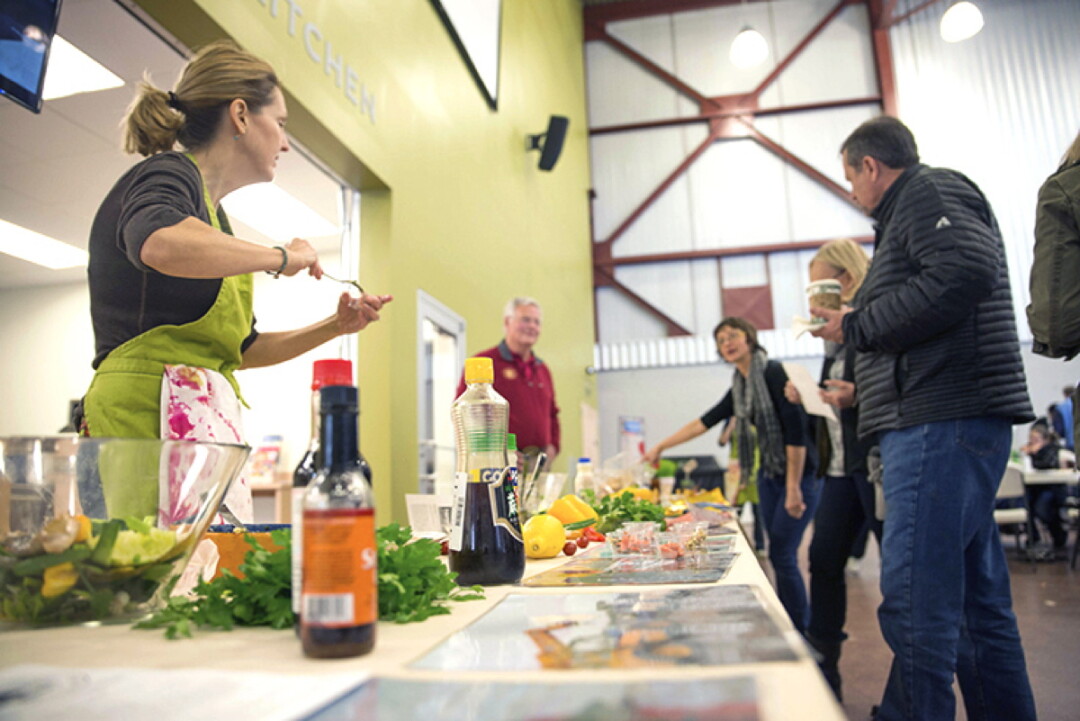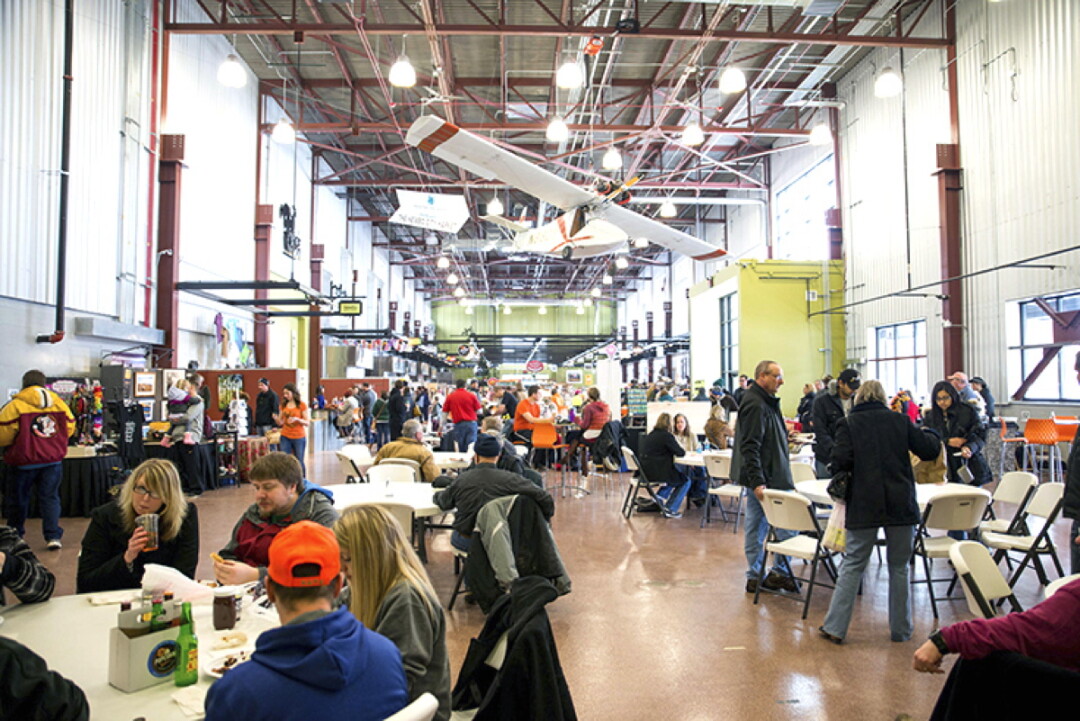City Considers Year-Round Public Market in West Bank Development

Once an industrial hub and the site of a cannery, Eau Claire’s West Bank neighborhood has been largely ignored and underused for decades. If city planners get their way, however, it could blossom anew as an integral hub of the Chippewa Valley’s burgeoning local food movement.
The West Bank – the narrow strip on the west side of the Chippewa River north of Madison Street – has been the subject of city redevelopment plans for years. Things are moving more quickly now, with the city Redevelopment Authority finalizing the purchase of two more properties. (See related story on Page 9.) Meanwhile, the city is also pursuing a grant to study how a year-round public market – which could include space for vendors, producers, or even eateries – could improve the neighborhood and the city’s food culture.
“It’s a serendipitous thing: There’s land, there’s interest, and there’s a nascent planning structure. And it’s cool!” –Eau Claire City Council President Kerry Kincaid, on the potential for a year-round public food market in the city’s West Bank neighborhood
If a plan for such a market ultimately is created, “It’s basically going to be tailor-made to what would work in Eau Claire,” explains Ned Noel, associate city planner. Noel oversaw the application for a U.S. Department of Agriculture grant that could bring in up to $100,000 to study the concept.
Eau Claire has a strong local food movement already, Noel notes, pointing out that the region has a high proportion of family-owned and organic farms. Furthermore, much of the local food activity is taking place just across the river from the West Bank: Consider the Downtown Farmers Market, the Forest Street Community Gardens, and the newly planted “edible landscaping” at the corner of Madison and Forest streets. Noel says all that the Phoenix Park farmers market has done – economically, socially, and in terms of civic pride – could be emulated and multiplied with a year-round market.
Buffet of Options
The concept of such a market has been circulating for several years. In 2012, City Council President Kerry Kincaid submitted the idea to the Mayors’ Institute on City Design and received feedback from planners and architects from around the Midwest. The concept involved creating a public market on the West Bank near the former site of the long-vanished Lange Cannery. In 2013 the new health chapter of the city’s Comprehensive Plan called for further consideration of the idea by the Redevelopment Authority.
The chapter described the concept in this way: “The space was envisioned for local vendors (farmers, bakers, butchers, florists, candy‐makers, fishmongers, vintners, brewers, craftspeople, etc.). The design noted other possible fixtures such as a commercial kitchen for cooking classes/business incubator, attached greenhouses, a food cellar, and rental space for events such as weddings and seminars. A restaurant, deli, café, outdoor ice skating rink, and rose/botanical gardens are other elements that could make the project more financially viable. An attached food hub could also be part of the mix.”

With such a buffet of options to pick from, it’s no surprise the city still hasn’t chosen what to put on its plate. But there are plenty of inspirational models: Noel mentions markets in Cedar Rapids, Iowa, and Green Bay, as well as a planned one in Madison, while Kincaid points to an indoor market she visited in Portland, Maine. Like that market, a public market in Eau Claire could offer a new community gathering space that would boost the local economy by providing an outlet for specialty food items.
Kincaid says the public market could help revitalize the neighborhood and meet the city’s goal of making better use of its neglected riverfronts. “It’s a serendipitous thing,” she adds. “There’s land, there’s interest, and there’s a nascent planning structure. And it’s cool!”
City Councilmen Andrew Werthmann and Eric Larsen sponsored the City Council motion to pursue the grant. Larsen says a public market could be a key ingredient of a food district that would encompass resources on both sides of the river. He envisions grocery stores buying produce directly from farmers and perhaps a business incubator for new food-oriented entrepreneurs.
“I’m on board with the concept that we promote local products,” Larsen says. “I’m on board with the concept of a small-business market where people that are producing, working on building their own family income with a small business, have someplace to go to expand that and get an income for themselves.”
Finally, Larsen notes that the West Bank sits near the edge of two “food deserts” – areas were access to fresh food is difficult – making the addition of a market there an additional benefit to the neighborhood.
Potential Partners?
Even though the city isn’t assured of receiving the grant – nor is there any guarantee that a food market would be found to be feasible after a grant-funded study – the food hub concept has enough momentum that the idea will likely remain on the table, Noel says. The concept is intriguing to others in the local food movement, including vendors, farmers, and businesses, he says.
Does that mean Eau Claire’s own local-oriented food co-op, Just Local Food, could be part of the mix? Nik Novak, president of the co-op’s board of directors, notes that Just Local’s current store, 1117 S. Farwell St., is at capacity. “We’re doing the best we can in our small, dysfunctional space, but we’re pursuing other opportunities,” he says, adding that Just Local Food is open to the idea of being part of a food hub.
Novak says increasing the emphasis on locally produced food is critical for the community’s future, both for ecological and economic reasons. “Eau Claire needs to be a destination community, and one thing that brings people together is great quality food, and we’ve got a lot of it,” he says.
Deidra Barrickman, who manages the Downtown Farmers Market, agrees that a food market can be complimentary to – not competitive with – existing food resources. Perhaps a new restaurant in the public market area could source ingredients from the farmers market or the community gardens across the river, she suggests. “I think there can be a lot of positive things that can happen over there,” she says.




















